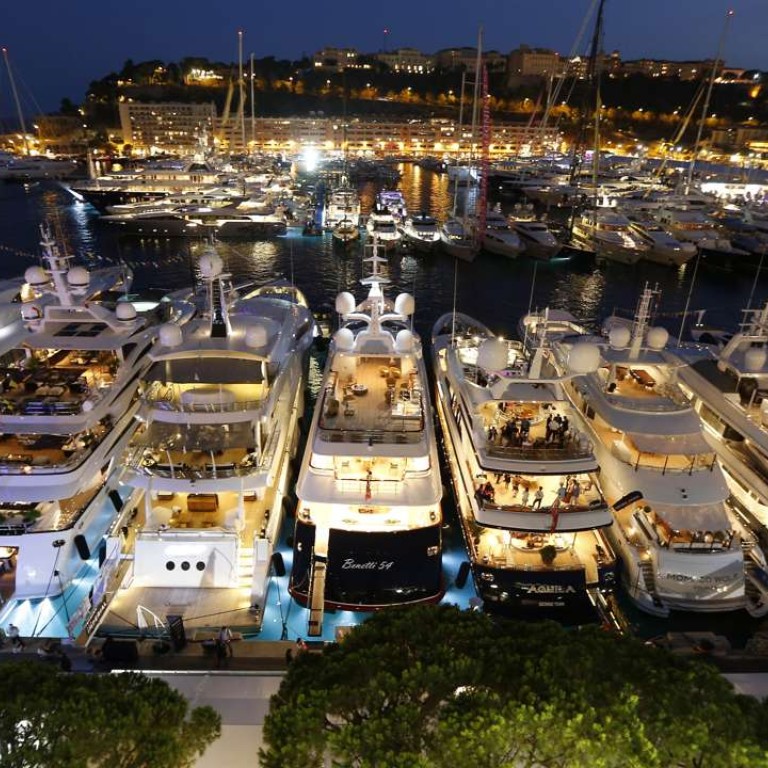
Beijing’s crackdown on wealthy excess puts the US to shame
Trump and Clinton’s past behaviour exemplifies America’s acceptance of greedy decadence and puts capitalism in a bad light
Less than a decade after cartoonishly rich US bankers blew up the global economy, Americans are considering electing as president a man who lives in gold-plated palaces and plies the oceans in supersized yachts.
China, meanwhile, is publicly shaming former high flyers for conspicuous consumption as trivial as feasting on crocodile tails and swilling shots of Moutai liquor.
For sure, the Chinese high flyers whose decadent behaviour is featured in the documentary series Always on the Road are in jail for corruption, whereas Donald J Trump, or even his far-from-penniless rival Hillary Clinton, have never been convicted of breaking laws in accruing their wealth.
The cultural contrast is striking, however. While China’s state is excoriating conspicuous displays of wealth, in America supporters of Trump point to his lavish wealth as proof of his innate skill and power.
Admiring the rich is not a new thing in the United States, nor necessarily a bad thing. The country has long been able to attract talented individuals to its shores, in part because economic success is generally applauded rather than resented.
However, in recent decades the upper classes in the US have gone on a shameless binge. The ratio of a CEO’s pay to the average worker’s has catapulted to 300 times from just 25 times in the 1960s, for instance, and evidence from researchers such as Harvard’s Lucian Bebchuk shows that the connection between CEO super-pay and performance is weak.

Near the end of his 2012 book, “Coming Apart”, Murray asks “to what extent have the boards of directors of corporate America…become cosy extended families, scratching at one another’s backs, happily going along with a market that has become lucrative for all of them, taking advantage of their privileged positions, rigging the game, but within the law”?
Murray argues that “unseemly” behaviour by the rich – from building absurdly large mansions to awarding golden handshakes to failed CEOs – is undermining the moral fibre of the nation.
While China’s state is excoriating conspicuous displays of wealth, in America supporters of Trump point to his lavish wealth as proof of his innate skill and power
There is more than morals, or even fairness, at play. Widening income inequality is an economic issue, because it undermines aggregate demand. It is hard to spend millions or billions of dollars, no matter how many crocodile tail dinners or yacht cruises one enjoys.
Thus consumption suffers when more and more gains accrue to fewer individuals. According to the economist Laura Carvalho, Americans in the top 20 per cent of earnings save as much as 40 per cent of their income.
Of course, there are policy solutions that can forcibly redistribute wealth, but heavy-handed interventions can have unintended economic or political consequences. The state is not everything; societies also depend on shared values to regulate their actions. No one forced Bill Gates or Warren Buffett to donate much of their wealth to charity and devote their considerable talents to philanthropy, but they do, and they bring honour on themselves in the process.
Moral suasion can be a powerful force in improving societal function. The board of Wells Fargo required its recently departed CEO, John Stumpf, to return US$41 million in stock options after a business scandal, in no small part due to a public shaming executed by Elizabeth Warren, a crusading
Consumption suffers when more and more gains accrue to fewer individuals
left-wing senator. This is progress; a decade ago, Stumpf would have probably been able to keep all the money – this time he walks away with only US$130 million. Ahem.
The fact remains that the lead US presidential candidates have both engaged in grasping, unseemly behaviour – with Clinton collecting millions in speaking fees from powerful institutions while knowing this would taint her political neutrality; and with Trump’s history of stiffing creditors and contractors, or using his name to sell useless credentials through Trump University, or even commissioning a giant self-portrait with charity money.
The fact remains that this does not reflect well on free societies or on capitalism. Trump keeps saying, “China is beating us.” When it comes to shaming its elite into acting more virtuously, Beijing does, at this moment anyway, sadly seem to have the upper hand.
Cathy Holcombe is a Hong Kong-based financial writer

